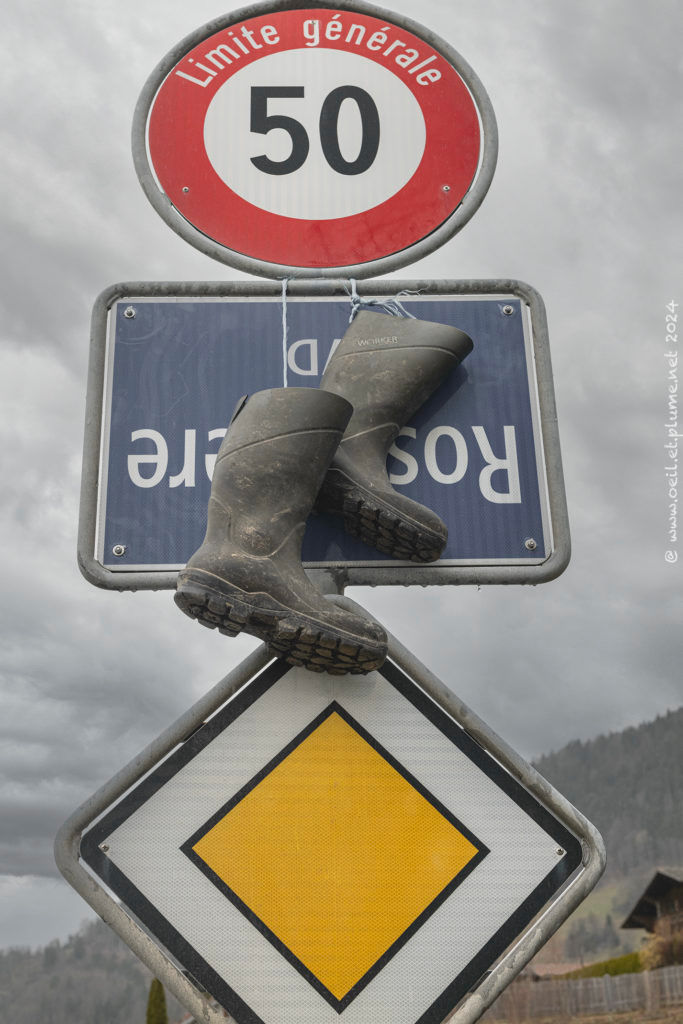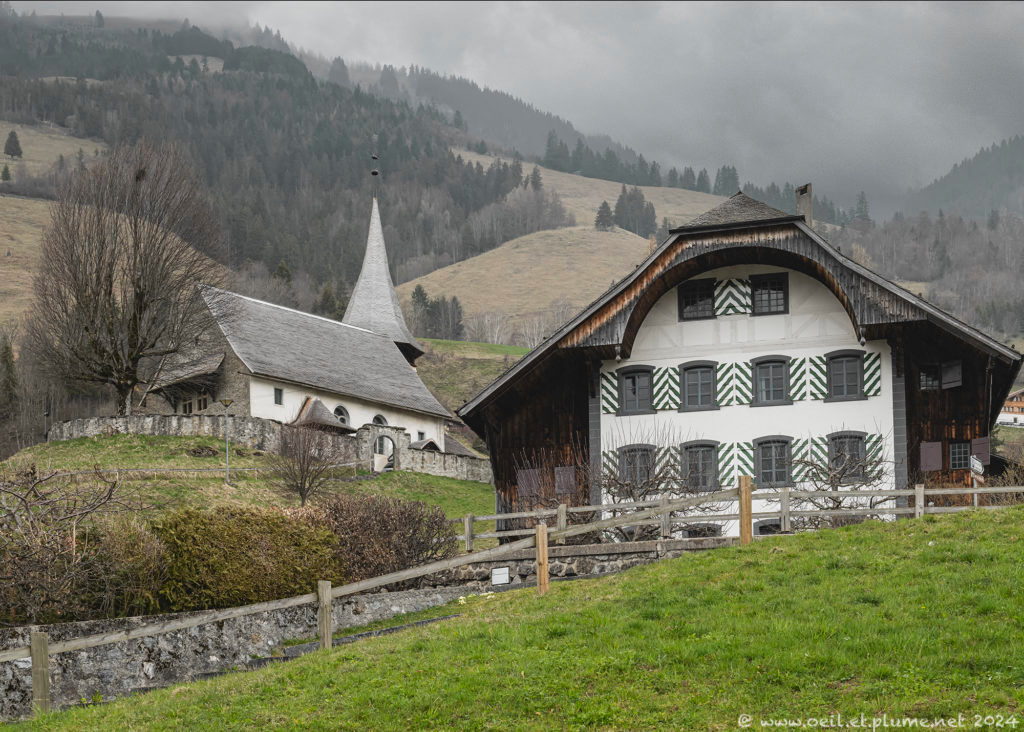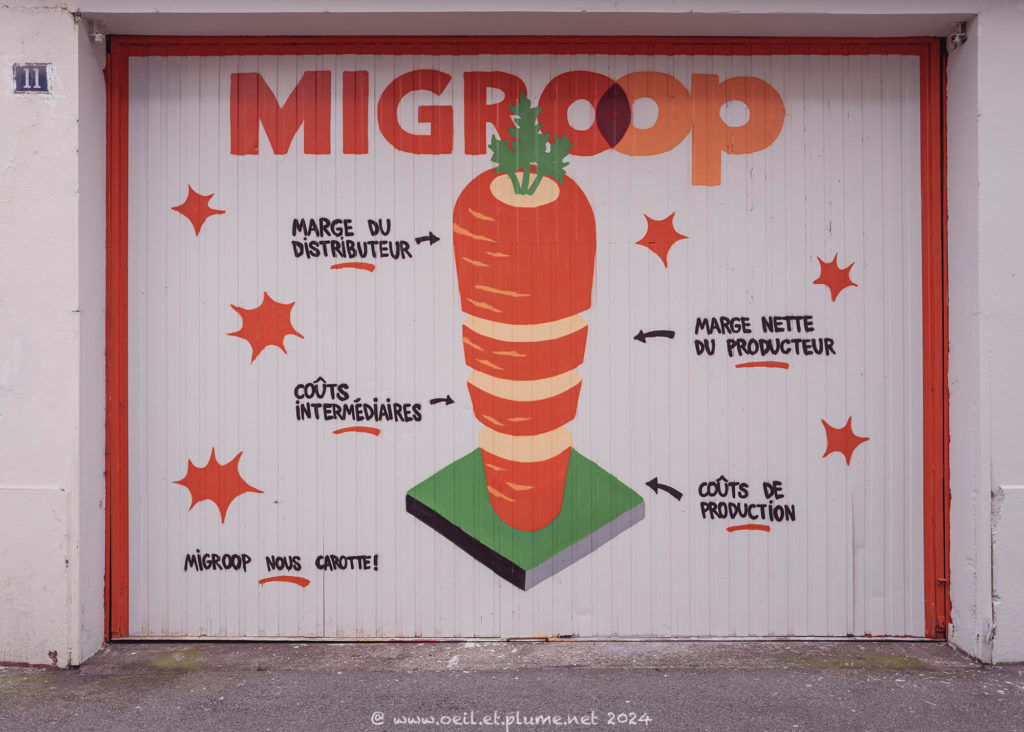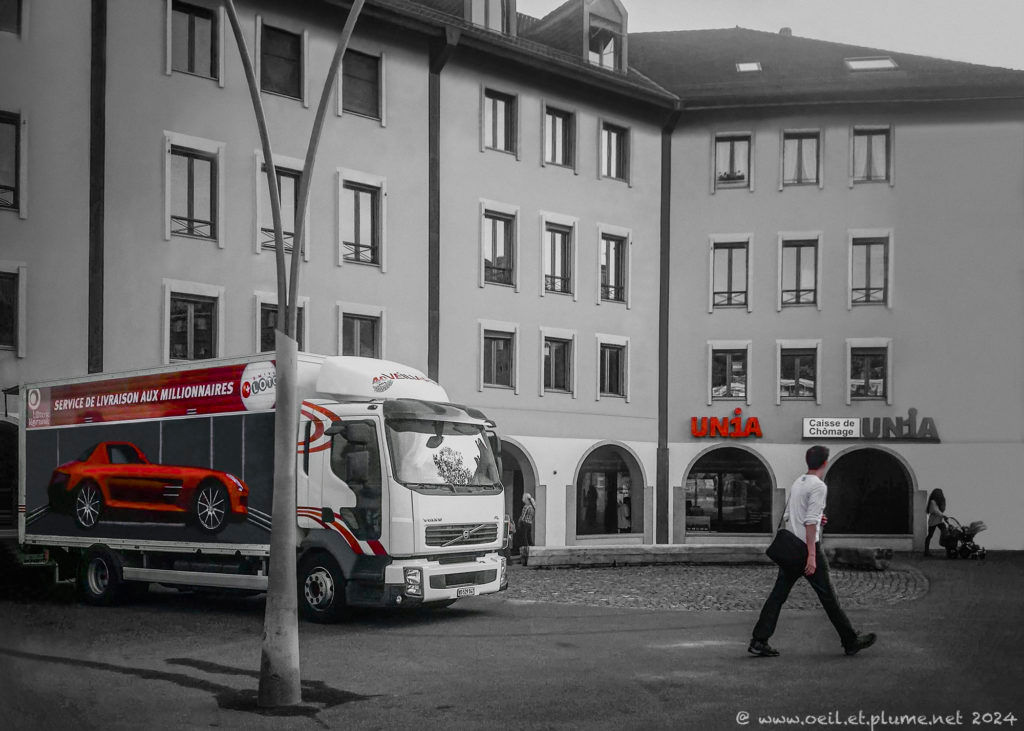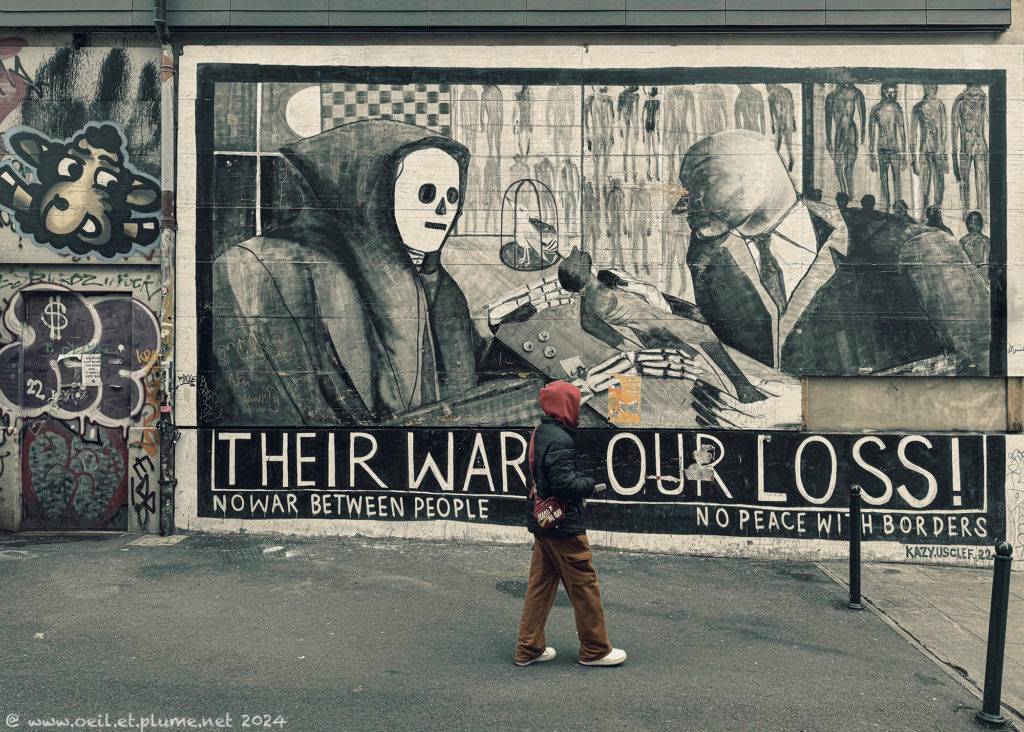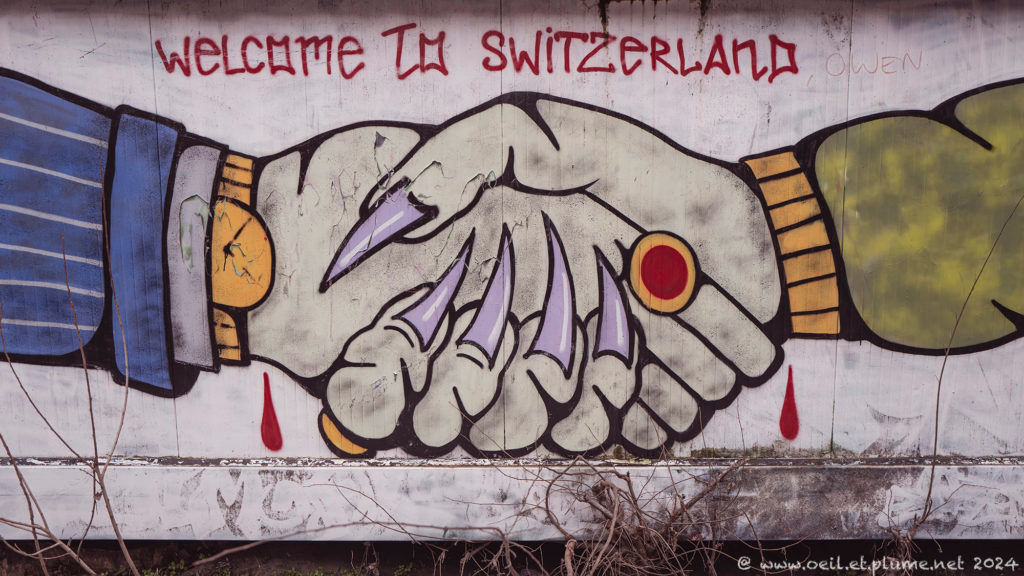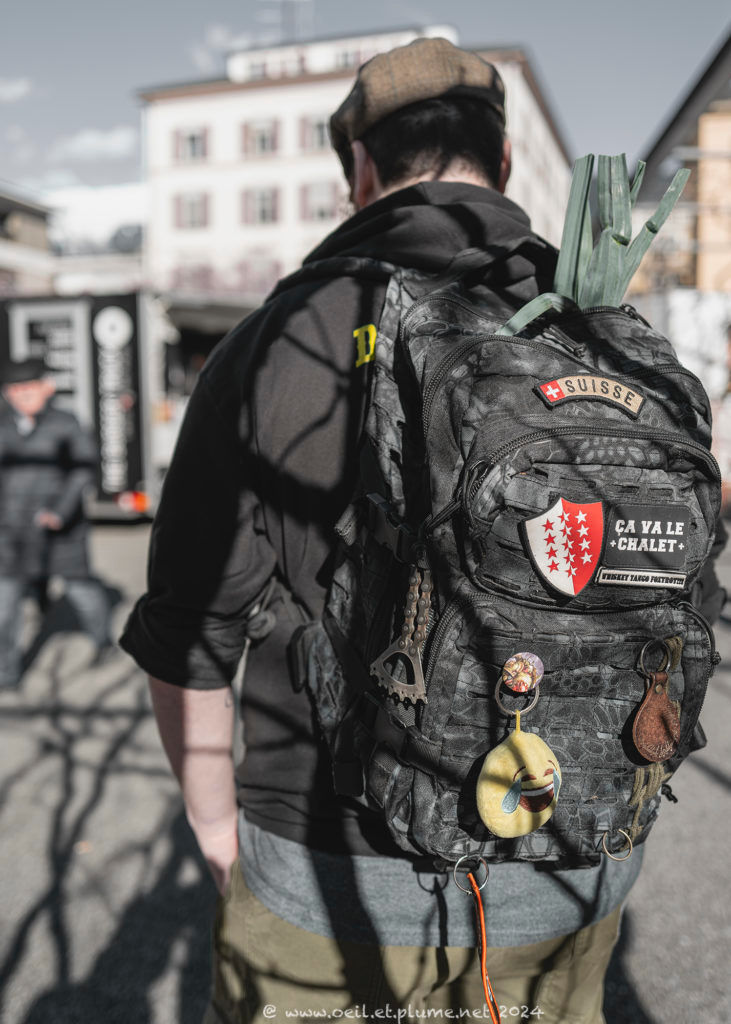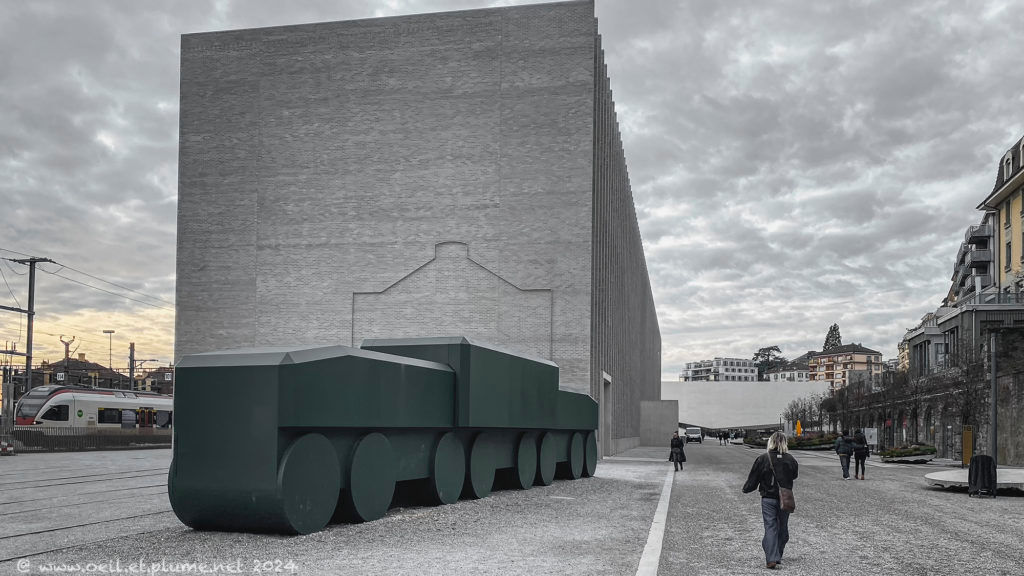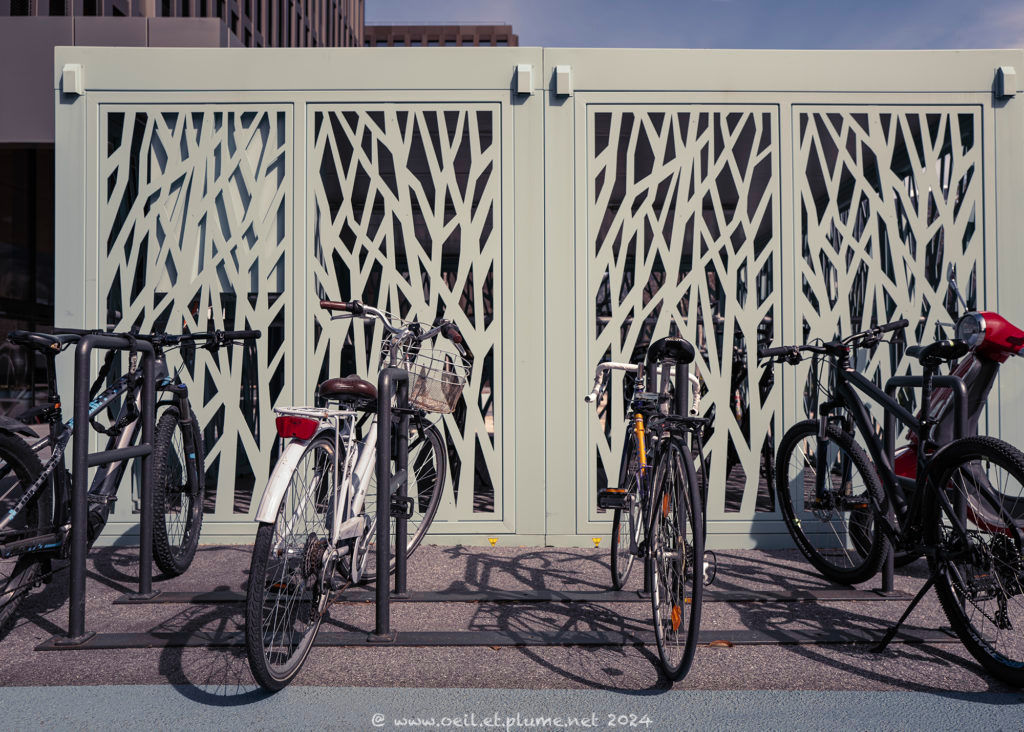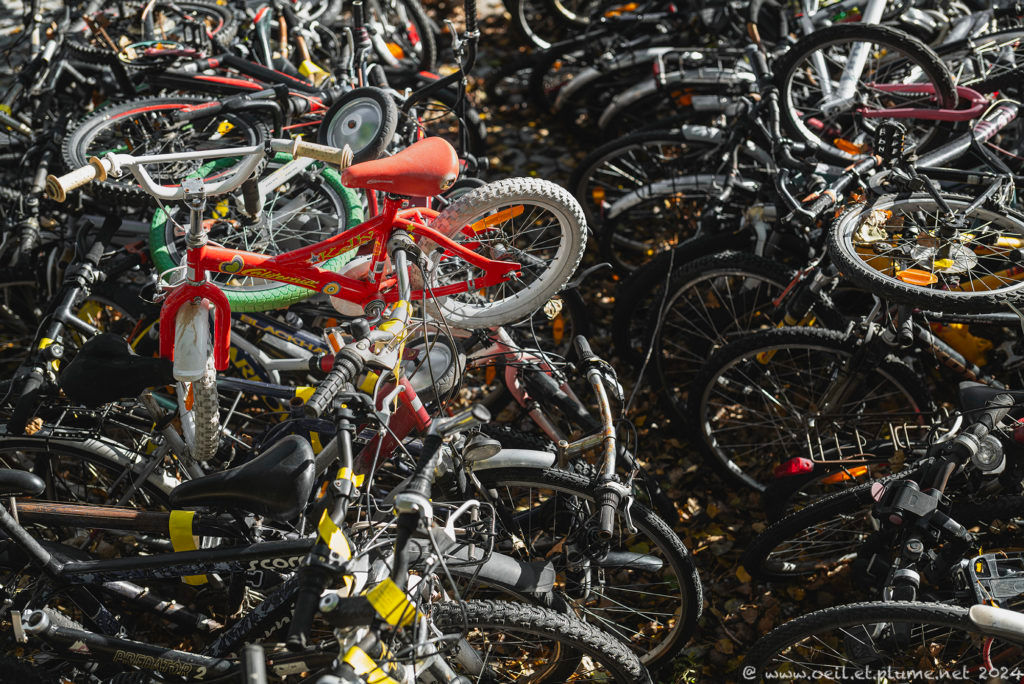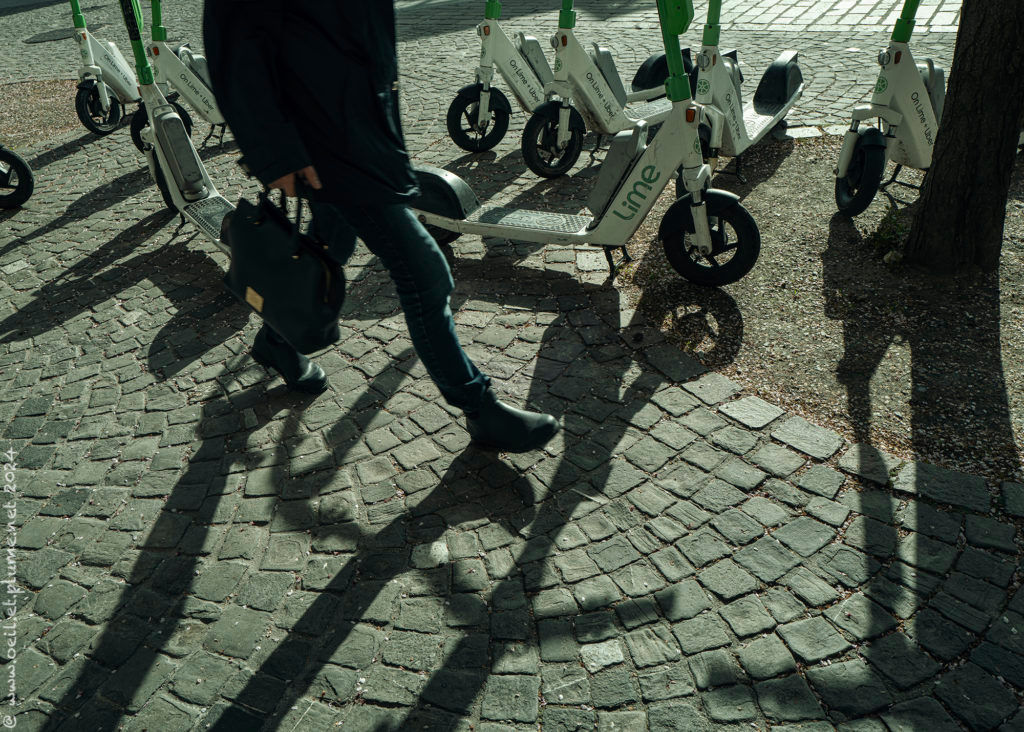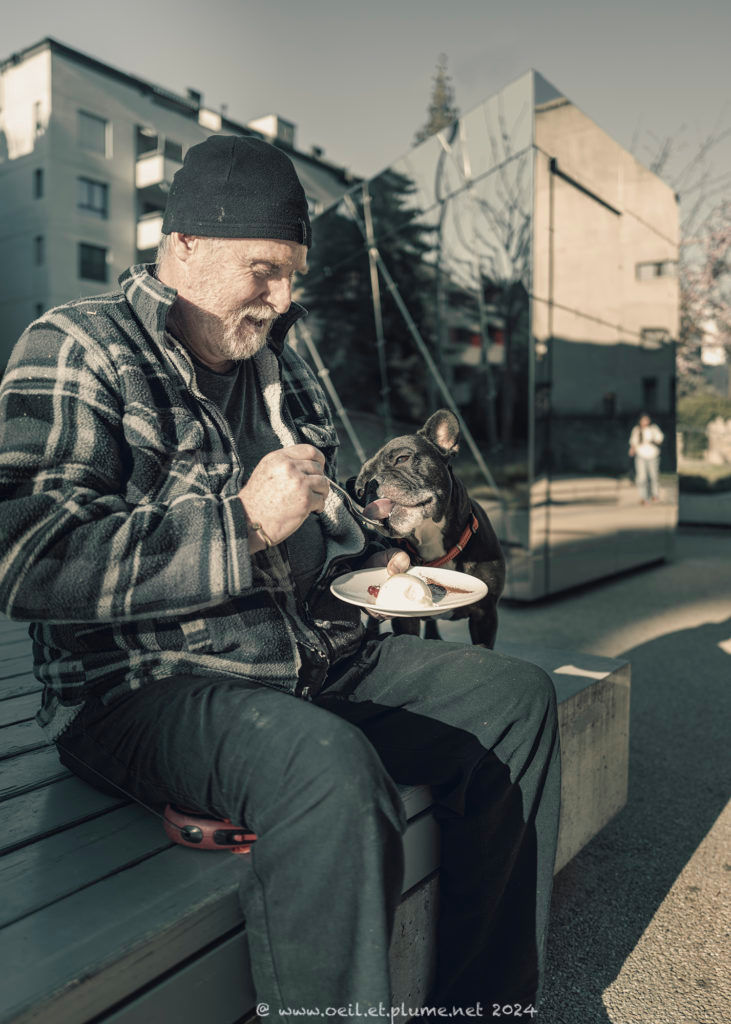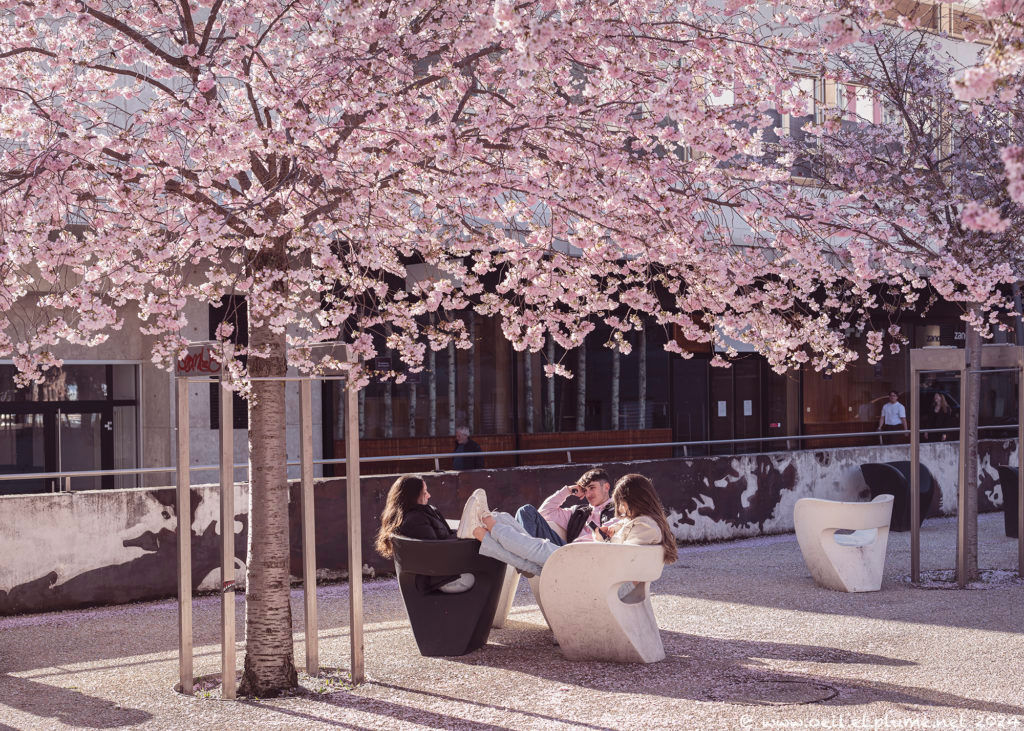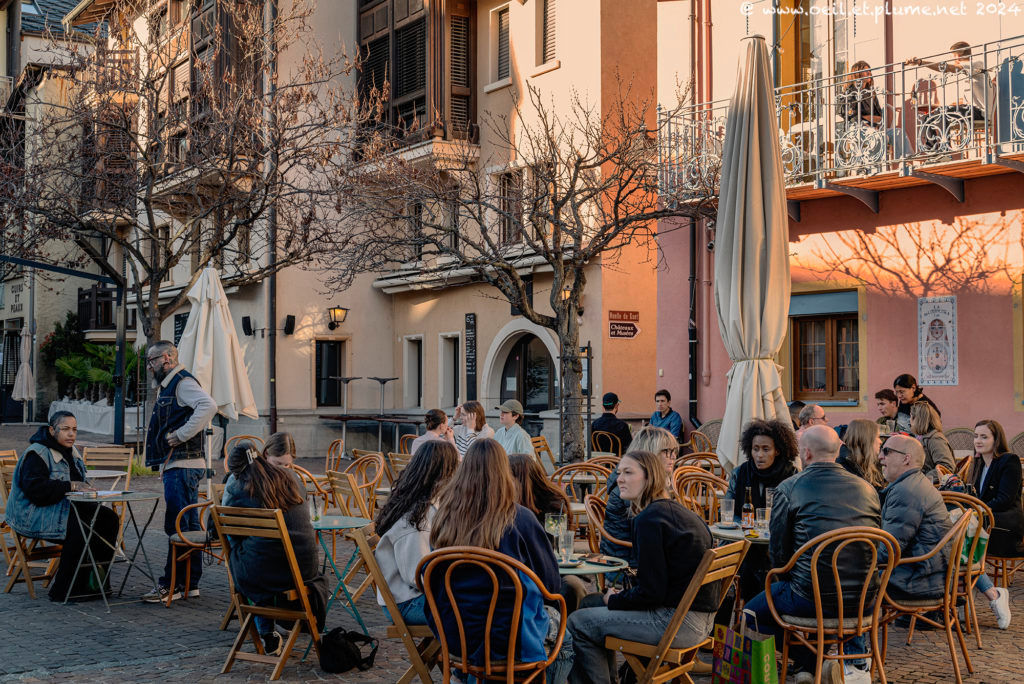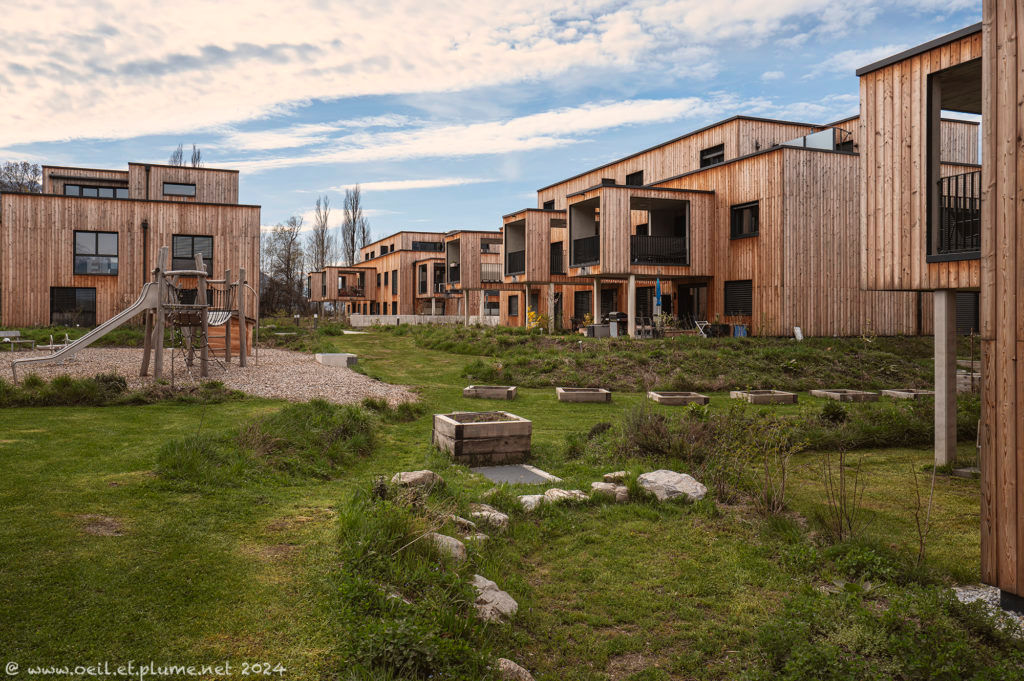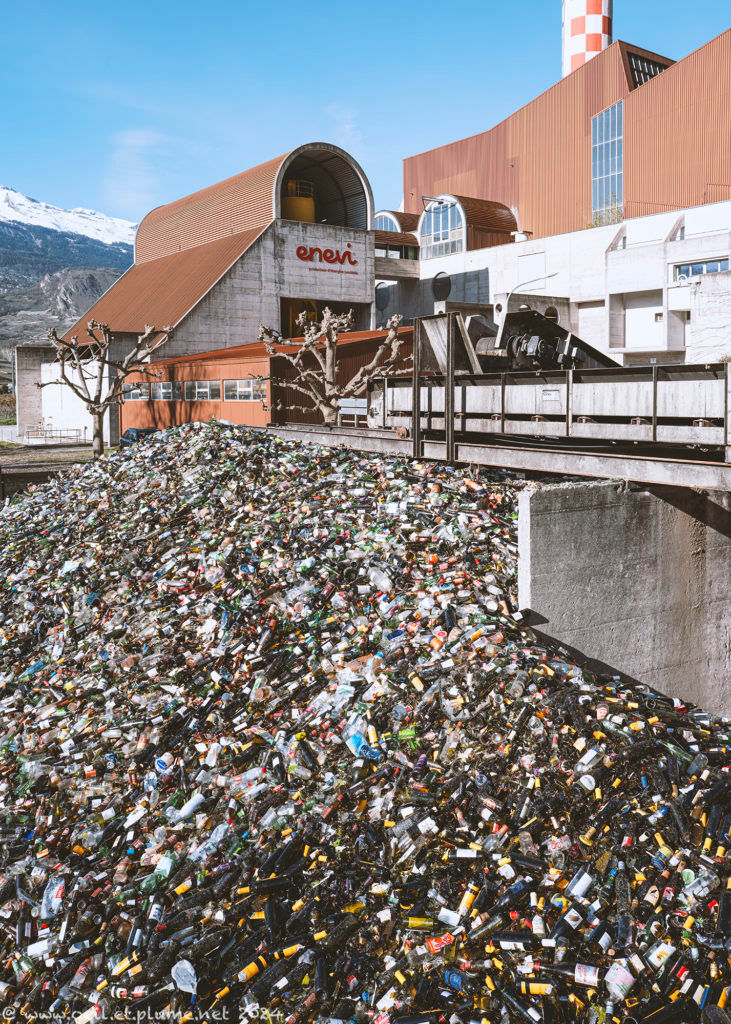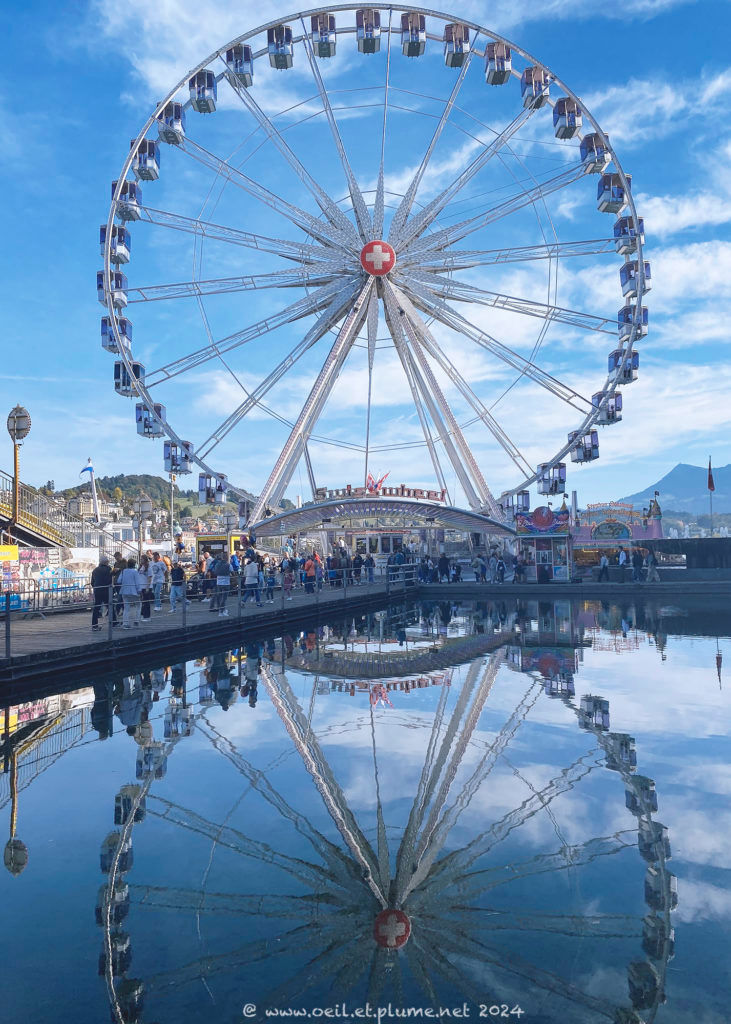Contemporary Swiss spirit
In order to sketch today’s Swiss spirit, I explored photographically the following topics:
- Rising cost of living;
- Fears about insecurity and wars;
- Asylum, immigration and integration of non-Swiss people;
- Regional and local identities in Switzerland;
- Mobility, ecology and climate change;
- Street life;
- Contemporary architecture
- Leisure and science-fiction.
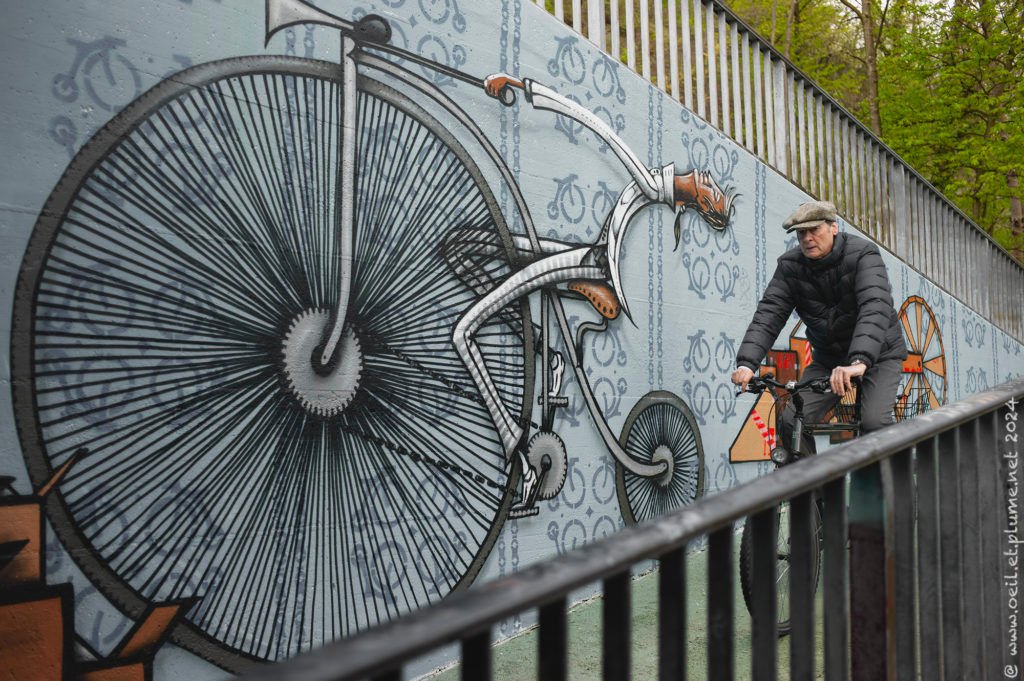
Switzerland is not immune to fears and societal challenges of our contemporary world, such as:
- Living costs: Rising costs of living constitute a key societal concern in Switzerland. Even if macro-economic inflation risks are well managed by central financial authorities, people complain about growing expenditures related to basic needs, including food. On their side, Swiss farmers lament about their fading profit margin. This year, they engaged into public protests in the Swiss way: no uproar nor material destruction, but clear signals to the political spheres and the general public. In the countryside, many road signposts were turned upside down with the tacit approval of local authorities.
- Social tensions: Social inequalities are rising, albeit less than in many other countries. The lower end of the middle class, traditionally very strong in Switzerland, is struggling financially. In contrast, a tiny social minority is wealthier than ever. Moreover, inter-generational frictions are growing. Many elderly are concerned about their fading purchasing capacity and call for the reinforcement of state social services. In turn, many youngsters are not only anxious about their ability to secure jobs and incomes. They question whether they will benefit one day of their financial contributions to the state social services and call the Swiss authorities to address urgently the systemic deficiencies of the welfare state.
- Insecurity: Insecurity spread over the world – fuelled by political tensions and failures of international diplomacy, competition for natural resources and other forms of economic rivalry. Armed conflicts multiply, tend to become complex, intertwined and protracted. Some of them are nearby Switzerland and many of them affect the country through migratory inflows. Swiss authorities debate about stepping up military expenditures and food emergency reserves. Moreover, infractions against the patrimony, especially robbery and cyber criminality, are on the rise in Switzerland. The aforementioned security concerns affect, directly or indirectly, the daily life of the general public.
- Migrations: Steady international migratory flows affect Switzerland in many ways. On the positive side, migrations inflows provide conflict-affected asylum-seekers with a safety net, fill gaps in the labour market, regenerate an aging society, stimulate intercultural exchanges. On the down side, international migrations are nowadays also motivated by economic hardship, climatic changes and rent-seeking. Therefore, selective immigration policies appear as a must. Switzerland is not the most welcoming society to incoming migrants, despite its multicultural social fabrics. The aforementioned societal challenges explain the paradox. Migrants are sometimes considered not only as foreigners, but as aliens and opportunists.
- Climate and ecology: Climate change and scarcity of natural resources are nowadays too obvious worldwide trends to be negated. Substantial progress was achieved in the last decade in terms of energy production, mobility, consumption and waste management. However, related public policies as well as individual behaviours are rather slow to adapt. For instance, Swiss people are traditionally fond of fast and luxury cars; they love speed despite abiding mostly to road traffic regulations. In recent times, electricity-powered vehicles have flourished as part of the expansion of gentle mobility. The trend is overall positive, but generates also growing extractive resources and waste management challenges. Expensive, electric vehicles represent also a target of choice for robbery.
The contemporary spirit of Switzerland is not only about societal challenges but foremost about quality of life, well-being and enjoyment. For youngsters especially, work is less central to their life than for older generations. In contrast, hedonism and leisure activities are more important than ever. Ethics remains a guiding rod for many people, while religious practices have dropped dramatically across all age groups. The strong proportion of foreigners and Swiss nationals of foreign origin living in Switzerland constitute a major factor of societal transformation.
In sum, the Swiss spirit is anchored in the country’s rich and long-standing values, traditions and culture. People in Switzerland remain attached to traditional values such as political stability and social organisation, at times excessively as it can hinder indispensable societal adaptation.
Overall, the spirit of Switzerland is definitively in the remaking. The Swiss wheel of change is running probably not as fast as our world evolves, but it keeps moving, moving, moving. Let’s strive to ensure that the evolving Swiss spirit will remain authentic, vivid and attractive.
Cheers,
